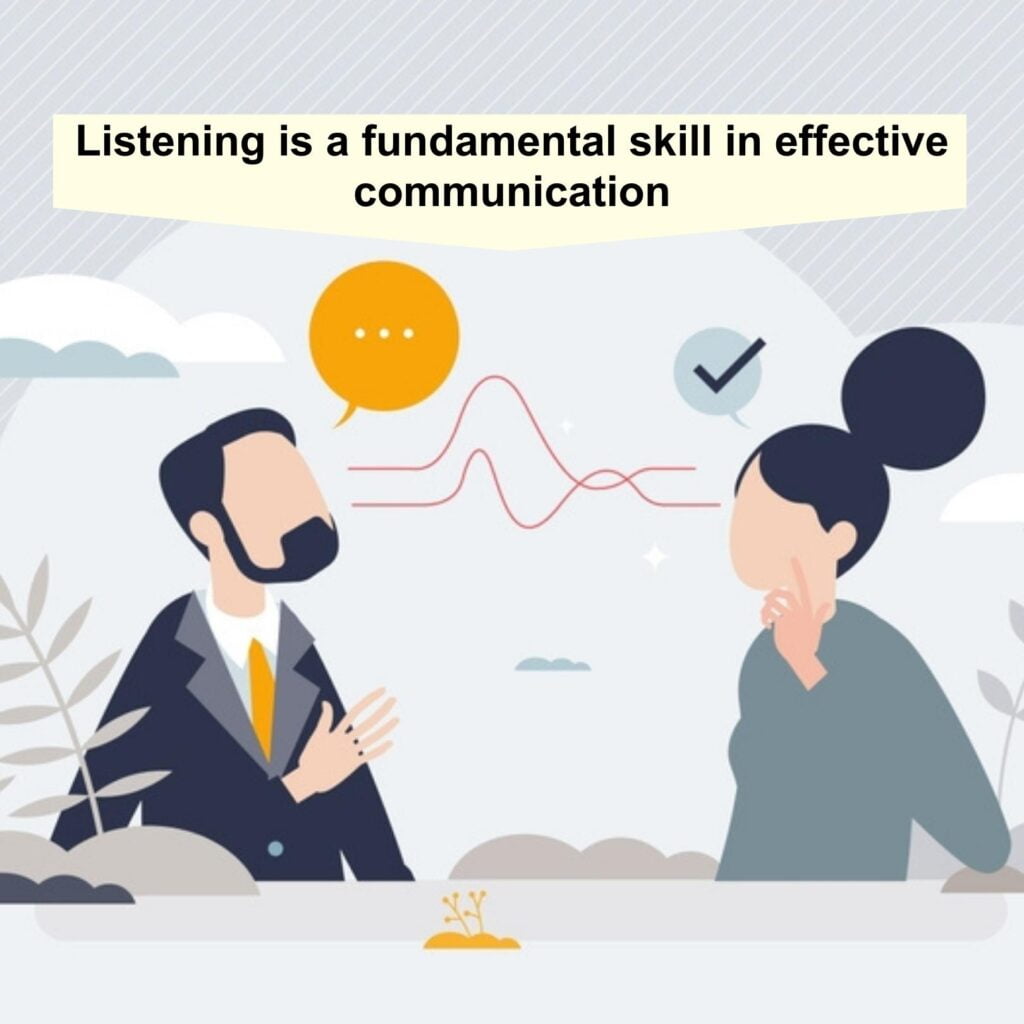Listening is a fundamental skill in effective communication, both in personal and professional settings. However, many of us struggle with bad listening habits that hinder meaningful connections and impede our understanding of others. In the fast-paced world of corporate environments, addressing these listening pitfalls becomes crucial for fostering collaboration and promoting emotional intelligence. Corporate training programs that focus on corporate can play a pivotal role in helping individuals recognize and overcome these bad listening habits.

Let’s explore some common listening pitfalls and strategies to break the barriers to better listening:
1. Interrupting and Finishing Sentences
Interrupting others or attempting to finish their sentences can be perceived as disrespectful and dismissive. This habit signifies a lack of patience and respect for the speaker’s thoughts. To overcome this, practice active listening by letting the speaker finish their thoughts before responding, allowing for a more inclusive and harmonious dialogue.
2. Jumping to Conclusions
Rushing to conclusions based on limited information can lead to misunderstandings and miscommunication. Embrace open-mindedness and give others the benefit of the doubt. Engage in emotional intelligence training to avoid jumping to hasty conclusions.
3. Offering Unsolicited Advice
Being overly parental and providing unsolicited advice can make others feel invalidated and diminish their ability to freely express themselves. Instead, when someone shares their thoughts or feelings, acknowledge their perspective and offer support without immediately offering advice. Remember, sometimes people just need a listening ear.
4. Making Assumptions
Forming opinions before obtaining all relevant information can lead to misinterpretations and biases. Embrace curiosity and ask clarifying questions to ensure you have a complete understanding of the speaker’s message.
5. Compulsive Note Taking
While taking notes can be helpful, compulsively jotting down every detail might distract you from actively engaging with the speaker. Strike a balance between noting essential points and maintaining genuine eye contact and connection during conversations.
6. Losing Temper During Disagreements
Getting defensive or losing your temper when hearing differing opinions can create tension and hinder constructive discussions. It creates barrier for future conversations as well. The speaker may not express freely the next time and will provide selective information. Instead, practice emotional intelligence by staying composed and seeking common ground during disagreements. This skills can be instilled by providing training in various corporate training Programs.
7. Shifting Focus to Personal Experiences
Relating every conversation back to your personal experiences can overshadow the speaker’s message and diminish the value of their input. Stay attuned to the speaker’s needs and emotions, and refrain from diverting the conversation towards your own experiences.
8. Preoccupied with Formulating Replies
Focusing too much on formulating responses while the other person is speaking can hinder active listening. Train yourself to give the speaker your full attention, absorbing their words before formulating your response. Whenever you find your concentration wandering from listening to formulating replies say to yourself ‘replies later’. This exercise will make you habitual of providing undivided attention.
9. Not Following Up on Commitments
Promising to respond or follow up after a conversation and failing to do so can erode trust and damage professional relationships. Be reliable and ensure you follow through on any commitments you make during discussions.
10. Impatience
Getting restless because the speaker is adding details, which may be important to the the speaker, and not coming to the point is also another common habit that hampers effective listening. Allow others to express themselves fully, and avoid rushing conversations to ensure a more fruitful exchange of ideas.
Recognizing and addressing bad listening habits is just the beginning of the listening journey. Here are additional strategies to improve listening skills:

1. Mindfulness Practices: Incorporate mindfulness exercises into your daily routine to help you stay present and fully engaged during conversations, reducing the temptation to interrupt or zone out.
2. Reflective Listening: Practice reflective listening by summarizing the speaker’s key points at the end to ensure you have understood their message correctly.
3. Empathetic Responses: Respond to the speaker’s emotions with empathy, showing that you understand and validate their feelings. For instance, ‘I understand’, ‘I feel you’ etc.
4. Patience and Silence: Embrace moments of silence during conversations to allow the speaker to collect their thoughts and express themselves fully.
5. Active Engagement: Engage with the speaker by nodding, making eye contact, and providing verbal cues to show that you are actively listening.
Hence, by recognizing and addressing bad listening habits, embracing patience, and practicing active listening techniques, we create a work environment characterized by empathy, respect, and collaborative teamwork.





Leave a Reply